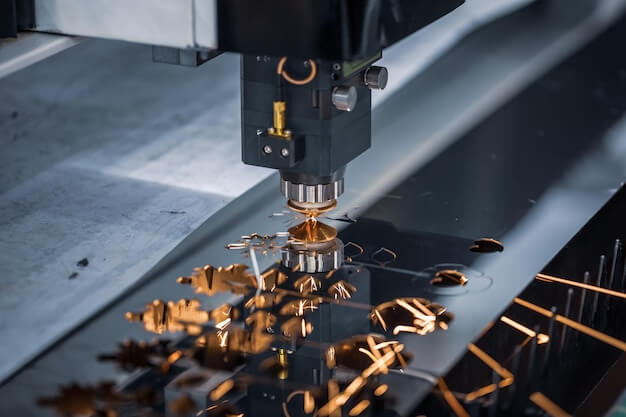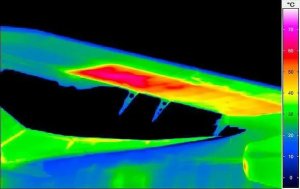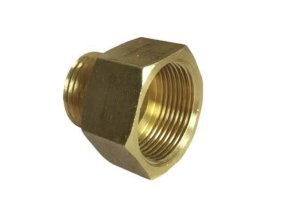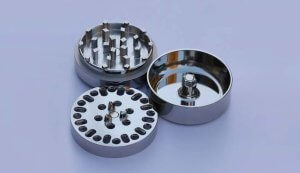Introduction to CNC Machining and Nickel Alloys
Computer Numeric Control (CNC) machining is a pivotal process in the manufacturing industry, using pre-programmed computer software to dictate the movement of factory machinery and tools. The use of various materials during this process plays a critical role, with nickel alloys earning a special mention due to their unique qualities. Precision, strength, and resistance are characteristics that stand out for these types of materials. Specifically within the realm of aerospace and marine applications, two frequently used nickel alloys are Inconel 718 and Monel K-500.
- Inconel 718: This superalloy maintains its structure under extreme environments such as high pressure or temperature conditions, which makes it an excellent choice for parts exposed to severe elements.
- Monel K-500: Known for its remarkable corrosion resistance and superior hardness, this alloy is often utilized in seawater application scenarios.
By understanding the distinct attributes and behaviors of each nickel alloy, manufacturers can determine the most appropriate choice for the desired end product in CNC Machining.
The Basics: Nickel Alloys and Their Uses
Nickel alloys are a type of metal alloy where nickel is the primary component. These alloys stand out for their superior resistance to oxidation and corrosion, which makes them an optimal choice across numerous harsh environments. Specifically in aerospace and marine applications, nickel alloys such as Inconel 718 and Monel K-500 are extensively used.
- Inconel 718: This superalloy exhibits excellent high-heat tolerance along with corrosion resistance, traits indispensable for aircraft engines and gas turbines.
- Monel K-500: This alloy showcases high strength and hardness qualities coupled with remarkable corrosion resistance, making it ideal for use in saltwater marine conditions, including propeller shafts and pump-shafts.
Such niches of usage highlight why nickel alloys continue to be pivotal within challenging sectors like aviation and maritime due to their inherent durability and adaptability to extreme working conditions.
Understanding Inconel 718 in CNC Machining Processes
Inconel 718 is a high-strength, corrosion-resistant nickel alloy commonly used in CNC machining processes for aerospace and marine applications. Its excellent mechanical properties and resistance to high-temperature environments make it a preferred choice for critical components. When machining Inconel 718, it’s essential to utilize high-performance tool materials and optimize cutting parameters to ensure efficient and precise manufacturing.
Understanding Monel K-500
Monel K-500 is a nickel-copper alloy renowned for its exceptional strength, hardness, and resistance to corrosion. This makes it an ideal choice for applications involving exposure to high temperatures and aggressive environments. Additionally, unlike many other alloys, Monel K-500 maintains its excellent properties even at subzero temperatures.
Applications of Monel K-500
The superior characteristics of Monel K-500 enable it to excel in various fields. For instance:
- In the aerospace industry, Monel K-500 is often employed in the production of engine components and fasteners due to its resistance to atmospheric conditions and high-stress environments.
- It’s also frequently utilized in marine industries for propeller shafts, pump and valve components. This owes largely to its ability to withstand seawater corrosion.
- In the oil and gas sector, this material serves aptly in pumps and valves used in sour-gas service because it resists H2S corrosion.
Comparative Analysis: Inconel 718 vs Monel K-500
The two nickel alloys, inherently provide distinctive mechanical properties that suit specific applications in the aerospace and marine industries. On one hand, Inconel 718, known for its exceptional high-temperature resistance, is primarily utilized for parts facing intense heat such as jet engines and gas turbines. Coupled with a remarkable stress-corrosion cracking resistance, its robustness withstands severe conditions.
- Advantages: High-temperature resistance, Excellent fatigue strength
- Disadvantages: Higher cost, Complex machining process
Contrastingly, Monel K-500 offers superior strength and hardness, alongside excellent corrosion-resistance property making it ideal for shafts, chains, fasteners etc.in marine environments. It retains this substantial strength at subzero temperatures too which makes it an appealing choice for cryogenic applications.
- Advantages: Great strength/hardness, Substantial low Temperature Resistance
- Disadvantages: Not suitable for high temperature environments, Susceptible to intergranular attack at elevated temperatures
Therefore, picking between these two depends largely on the application, environment, and budgetary considerations.
Application of Inconel 718 and Monel K-500 in the Aerospace Industry
In the blooming field of aerospace engineering, the use of nickel alloys like Inconel 718 and Monel K-500 have become vital due to their ability to withstand intense conditions including drastic changes in temperature, pressure, and corrosive environments. Inconel 718, recognized for its high yield, tensile strength, and resistance to corrosion at high temperatures, is prevalently used in manufacturing aircraft engine parts such as disks, blades, casings, and shafts. It can also be found in heat-treating equipment that needs to maintain a structural stability even after exposure to extreme heat.
- A notable example being the Cessna Aircraft Company incorporating Inconel 718 into the structure of their fleet’s turbine engine.
Conversely, Monel K-500 showcases superior properties including higher strength and hardness which makes it ideal for applications requiring resistance to fatigue and corrosion especially under heavy loads—rendering it perfect for ship propellers & pumps, submarine auxiliary motors components, springs, and fasteners within the aviation industry.
- An instance of this being implemented can be seen with Northrop Grumman’s B-2 Spirit Stealth Bomber utilizing elements made from Monel K-500.
Application in Marine Industry
In the area of marine-based CNC technologies, nickel alloys such as Inconel 718 and Monel K-500 have proven instrumental due to their high mechanical strength and excellent corrosion resistance. A case study that effectively highlights their efficiency centers on shipbuilding industries which utilize these materials for key components such as propeller shafts and pump shaft sleeves.
- Inconel 718: This is a high-strength, corrosion-resistant nickel chromium material used at -423° to 1300°F. Its outstanding vanadium and columbium content make it quite resistant to post-weld cracking, making it an ideal choice for manufacturing highly stressed, strain-hardened elements that are constantly exposed to salty seawater.
- Monel K-500: This alloy combines the excellent corrosion resistance characteristic of Monel 400 with the added advantage of greater strength and hardness. It provides increased properties obtained from additions of aluminium and titanium. Hence, parts made using Monel K-500 demonstrate superb performance despite persistently corrosive marine conditions.
Both of these nickel alloys provide numerous benefits to ships, submarines, and offshore drilling platforms, validating their widespread use within this industry sector.
Navigating Material Selection
In conclusion, the intricate process of selecting materials for CNC machining, especially within aerospace and marine applications, is a crucial aspect in manufacturing operations. Particularly, our focus on Nickel alloys such as Inconel 718 and Monel K-500 has shed light on how these metals exhibit varying performance characteristics under stress, high temperature, and corrosive conditions.
- Inconel 718: Known for its exceptional strength and corrosion resistance, it proves to be an excellent choice in extreme environments, particularly those experienced within aerospace structures.
- Monel K-500: Exhibiting impressive toughness and hardness, this alloy is typically favored in applications that are subjected to sour gas environments and high mechanical stresses commonly encountered in marine settings.
Thus, material selection should not be taken lightly, as each choice reverberates through product performance, longevity, safety, and overall project success. The precise application and environmental condition play pivotal roles in determining the most suitable alloy selection, further underscoring the significance of understanding material characteristics and behavior under operating circumstances. Both these nickel-based superalloys offer distinct advantages depending on their intended use, emphasizing the versatile reliability of nickel alloys in advanced manufacturing techniques like CNC machining.
Other Articles You Might Enjoy
- Unraveling Bead Blasting Process in CNC Machining(cnc machining china Sid)
Bead blasting is a significant process within the realm of Computer Numerical Control (CNC) machining, providing numerous industries with quality finishes for various types of products. From aircraft parts to…
- Exploring Bead Blasting in CNC Machining(cnc machining services china Nicole)
Bead blasting is a process used extensively in the world of computer numerical control (CNC) machining. A standard part of many businesses, bead blasting enriches various products that we use…
- Understanding Bead Blasting in CNC Machining(china machining Avery)
Bead blasting, a compelling term in the world of Computer Numerically Controlled (CNC) machining, is an influential process that plays a transformative role in optimizing and enhancing parts' aesthetic and…









